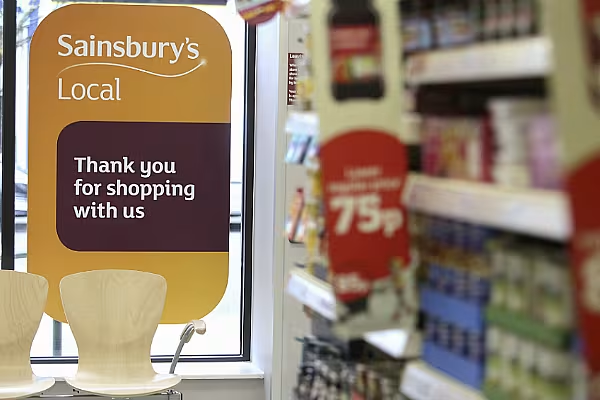British retailer Sainsbury’s posted an H2 profit increase of 11%, it announced in the release of its full-year financial results for 2017/2018 on Monday.
Illustrating 'a return to growth', the results came on the heels of the announcement of the confirmed merger with Asda Group Ltd., a retail chain owned by American company Walmart Inc. In a release, Sainsbury's said that the merger will 'create a dynamic new player in UK retail with an outstanding breadth of products, delivered through multiple channels.'
Sainsbury's underlying profit before tax was £589 million. Group sales, including VAT, reached £31.7 billion, an increase of 9% from the previous year. Its free cash flow was £432 million, up £113 million year on year. Its net debt was reduced by the same amount, and the company said its goal is to reduce net debt by £100 million in 2018/2019.
Underlying earnings per share dropped 6% to 20.4 pence per share, which demonstrated the affect of a full year’s consolidation of additional shares upon the HRG acquisition, the company said. Its profit expectation for 2018/2019 is on track with the market consensus of £629 million.
The company also announced the beginning of the search process for the recruitment of the successor to non-executive chairman David Tyler, led by Dame Susan Rice and the nomination committee.
Period Highlights
Some of the highlights of the period included the rise in sales of the Convenience and Groceries Online segments, which increased almost 8% and 7%, respectively; and General Merchandise and Clothing, including its Argos business, which continued to excel in a struggling market, the company said.
Argos stores present in Sainsbury’s supermarkets equalled 191, with an aim to reach 280 by the end of the 2018/2019 year (which exceeds the original expected number of 250 by March 2019). The company said it will ‘deliver £160 million EBITDA synergies’ by that same date, which will be six months ahead of schedule.
Digital sales continued to expand in 2017. Sixty-percent of sales started online, with 70% initiated from mobile devices.
In February of this year, the company acquired the Nectar loyalty programme and related assets from Canadian analytics company Aimia for £60 million, bringing its loyalty programme back in-house. Sainsbury's was a founding partner of the Nectar scheme, which launched in 2002, replacing its own loyalty card with a system that allowed shoppers to gain rewards from a number of retailers and brands.
"A destination of choice"
Mike Coupe, group chief executive of J Sainsbury plc, commented on the results, "We have accelerated the rate of change and innovation across the Group and more customers are choosing to shop with us than ever before as a result."
“We are focused on making Sainsbury’s a destination of choice. We are clearly differentiated by the quality of our food and we have recently invested a further £150 million to lower prices."
"Sainsbury’s Bank profits grew as we fully consolidated Argos Financial Services during the year. Looking to the year ahead, we expect lending margins to remain under pressure in a competitive market. Combined with new accounting standards and interest payments on the external capital we raised in November, we expect Bank profits to reduce significantly next year.
"We have decided to limit capital injections in the Bank to £110 million in 2018/19. We will take a cautious approach to unsecured lending while maintaining focus on mortgage growth."
© 2018 European Supermarket Magazine – your source for the latest retail news. Article by Karen Henderson. Click subscribe to sign up to ESM: European Supermarket Magazine.














